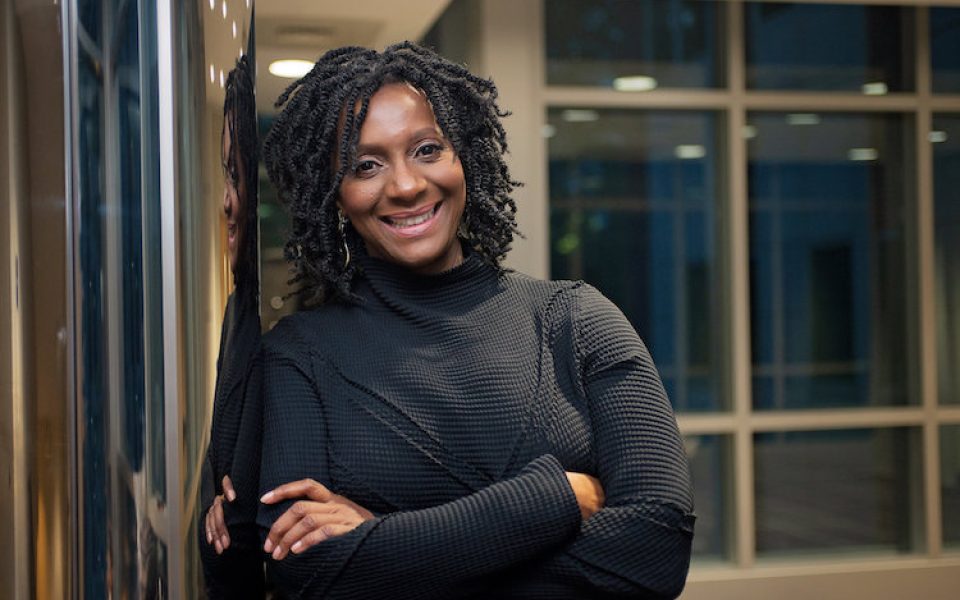Touring Theatre of North Carolina stages Mad at Miles: A Black Woman’s Guide to Truth at Triad Stage Thursday through March 31. The work was adapted by Donna Baldwin-Bradby from a book by Pearl Cleage in 2008 — the first adaptation in the country from the written work. It was first performed in 2008 at Triad Stage. Tickets and showtimes can be found at ttnc.org.
How did you find out about Mad at Miles?
Well [Cleage] wrote it in the ’90s about Miles Davis. I had never heard about Mad at Miles; I had heard about Pearl Cleage of course. A student named Amanda Baker performed one of the monologues in an audition in 2006. The work is about how Miles Davis wasn’t remorseful when he was abusive to women. [Cleage] came under a lot of pressure for it. She lost a lot of friends because she called out this musical icon. She was ahead of her game for what we call the #MeToo movement.
What about it drew you to want to put it on as a play?
Personally, what drew me to it, I am a survivor of sexual abuse from a family member. So, anything that deals with that subject matter, I’m always drawn to it. A lot of what happened I hadn’t dealt with it, and Mad at Miles helped me deal with it. It was in a world that I could understand, in theater. I don’t believe that things happen by accident. The first time we did it, I was terrified. After the performances, it got an overwhelming response. People would come up to me or the cast in tears. And I’d be like, ‘No lady, I have a story to tell you. Can you help me?’ I had to have counseling. I’m a theater artist, I’m not a therapist. It was an awakening for me.
Many of [the actors] have had experiences that connect them to the stories. Sometimes we just have to stop and breathe for a minute. The show is heavy but it’s light. There’s some funny stuff in there. They have a lot of fun doing the show.
The story hits right in the middle of conversations about how or whether to separate the artist from the art in the #MeToo movement. We’ve got people like Kevin Spacey, R. Kelly and, most recently, Michael Jackson. How do you feel about that?
It really is #MeToo! Every time we’ve done it, I’ve had people come up to me. I’m not talking about two people, I’m talking about 12 people. How can we buy the record if they’re slapping one of our sisters? How can we separate the music of the man? In the story, Mad at Miles, you see this woman talking about how his music inspired her. She’s in turmoil, and by the end of it, she goes almost insane because she couldn’t forget about Cecily Tyson, the woman who Miles abused.
You’re putting on this show again for the first time in 10 years. What’s that like?
Back then, we were dealing with it when we did it, but in a more intimate setting. People came to the show and people would share stuff. But in the day of social media, the platform is huge. It’s large. Now it’s broader, more robust. There’s conversations about it all day every day. What frightens us now is what frightened us then. We didn’t know how people would respond. I wouldn’t have guessed that there would be an international movement. The difference is social media. People can immediately respond to your work on their own. People can start tweeting about it. The control is with the people now. The backlash that Pearl dealt with it then, people aren’t dealing with it as much now.
Why is this piece important?
It’s an hour long. I believe this needs to be a first-year experience. Freshmen need to see Mad at Miles. Statistics show that mostly it’s freshman being preyed on by older students. It really makes you think about sexual assault, racism, sexism. The show is meant for everyone. I know that theater has been at the heart of cultural change. We create a unique community. I think that there’s a difference in live theater. I think it’s relevant now because everyone that comes to see it, they can get it where they fit in. [The story] “Good Brother Blues” is a call to action for men for example. The show is all about love. The goal with Mad at Miles is that it becomes that tool for universities and perform it at universities and tour so that we can go to every university.
Join the First Amendment Society, a membership that goes directly to funding TCB‘s newsroom.
We believe that reporting can save the world.
The TCB First Amendment Society recognizes the vital role of a free, unfettered press with a bundling of local experiences designed to build community, and unique engagements with our newsroom that will help you understand, and shape, local journalism’s critical role in uplifting the people in our cities.
All revenue goes directly into the newsroom as reporters’ salaries and freelance commissions.


Leave a Reply